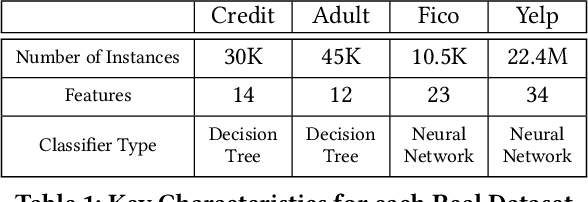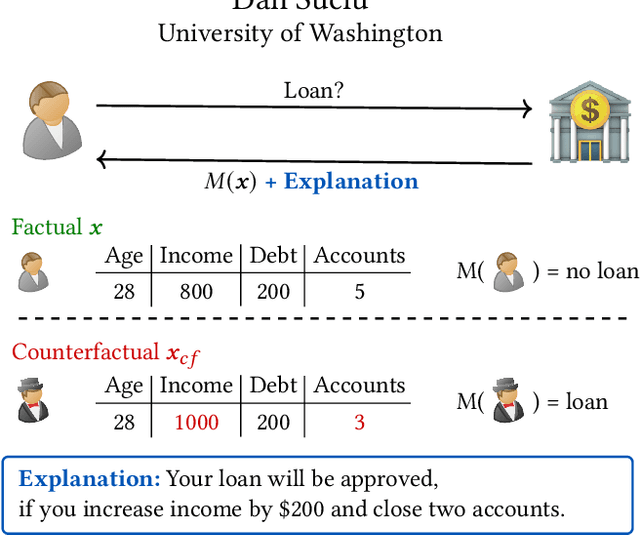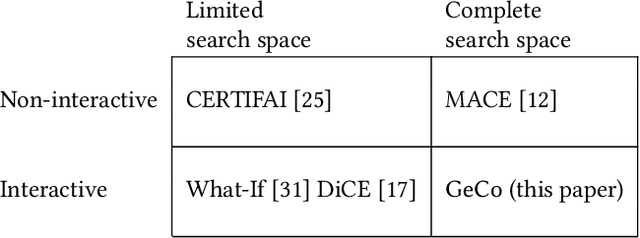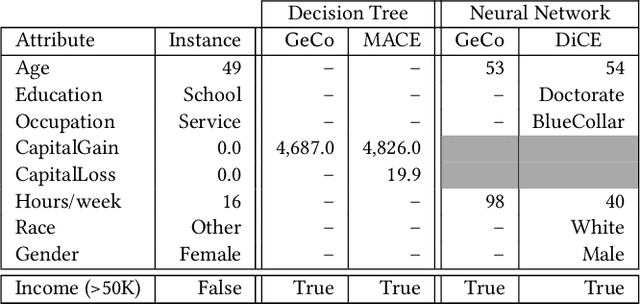Zixuan Geng
Computing Rule-Based Explanations by Leveraging Counterfactuals
Oct 31, 2022



Abstract:Sophisticated machine models are increasingly used for high-stakes decisions in everyday life. There is an urgent need to develop effective explanation techniques for such automated decisions. Rule-Based Explanations have been proposed for high-stake decisions like loan applications, because they increase the users' trust in the decision. However, rule-based explanations are very inefficient to compute, and existing systems sacrifice their quality in order to achieve reasonable performance. We propose a novel approach to compute rule-based explanations, by using a different type of explanation, Counterfactual Explanations, for which several efficient systems have already been developed. We prove a Duality Theorem, showing that rule-based and counterfactual-based explanations are dual to each other, then use this observation to develop an efficient algorithm for computing rule-based explanations, which uses the counterfactual-based explanation as an oracle. We conduct extensive experiments showing that our system computes rule-based explanations of higher quality, and with the same or better performance, than two previous systems, MinSetCover and Anchor.
GeCo: Quality Counterfactual Explanations in Real Time
Jan 05, 2021



Abstract:Machine learning is increasingly applied in high-stakes decision making that directly affect people's lives, and this leads to an increased demand for systems to explain their decisions. Explanations often take the form of counterfactuals, which consists of conveying to the end user what she/he needs to change in order to improve the outcome. Computing counterfactual explanations is challenging, because of the inherent tension between a rich semantics of the domain, and the need for real time response. In this paper we present GeCo, the first system that can compute plausible and feasible counterfactual explanations in real time. At its core, GeCo relies on a genetic algorithm, which is customized to favor searching counterfactual explanations with the smallest number of changes. To achieve real-time performance, we introduce two novel optimizations: $\Delta$-representation of candidate counterfactuals, and partial evaluation of the classifier. We compare empirically GeCo against four other systems described in the literature, and show that it is the only system that can achieve both high quality explanations and real time answers.
 Add to Chrome
Add to Chrome Add to Firefox
Add to Firefox Add to Edge
Add to Edge